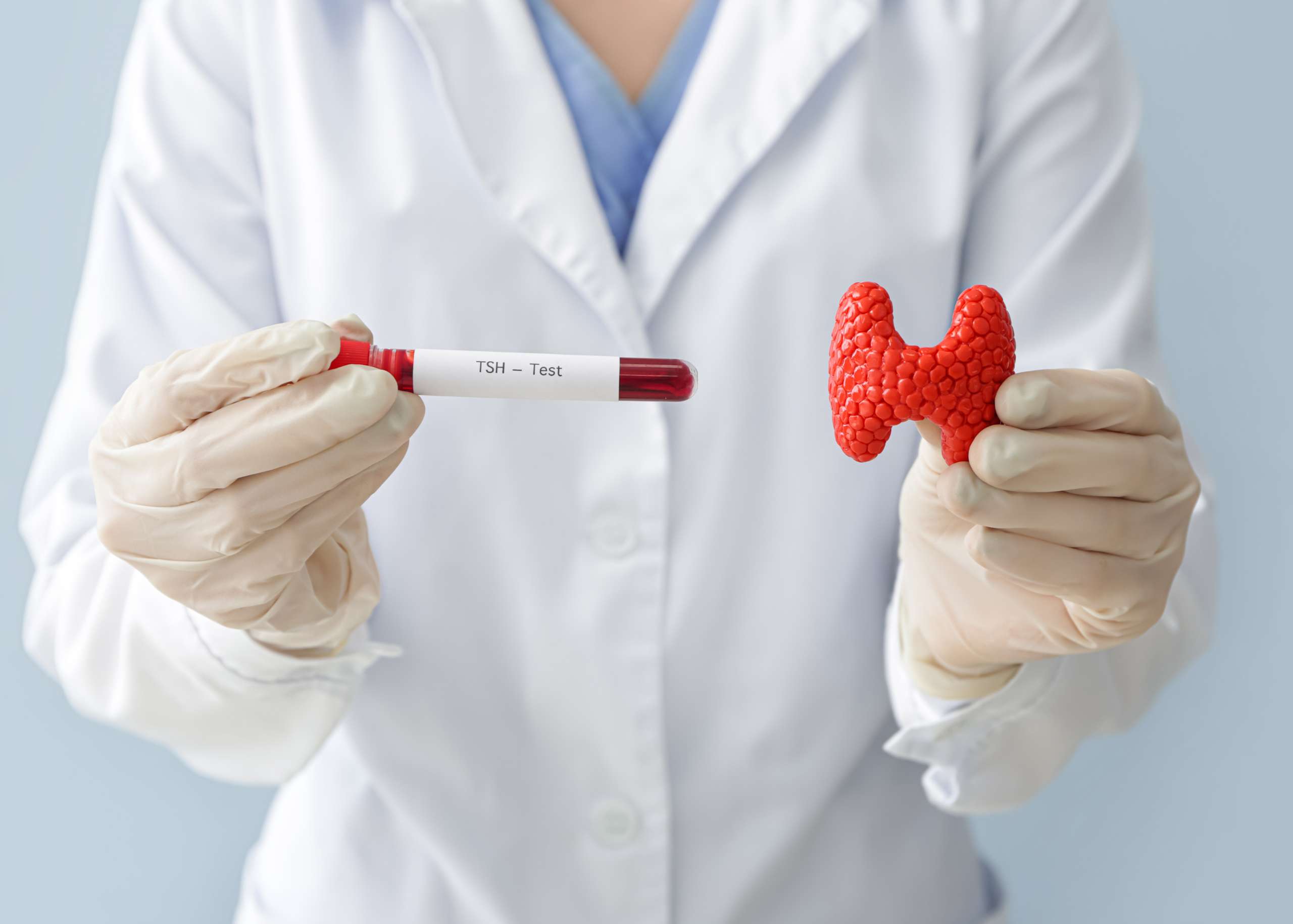Why do I Need a Thyroid Antibodies Test?
The thyroid antibodies test is a blood test that checks for the presence of thyroid-damaging antibodies in your blood.
What are Thyroid Antibodies?
The thyroid gland is an important organ that regulates metabolism and protein synthesis in the body. Thyroid antibodies are proteins the immune system produces in response to thyroid tissue as an auto-immune manifestation. Autoimmune diseases are caused by the body’s immune system mistakenly attacking its tissues. Autoimmune thyroid disease (AITD) causes cellular damage and alters thyroid gland function. Autoimmune diseases are prevalent in the population, and AITD is one of the most common representatives.
Alterations in thyroid gland function result from stimulating or blocking autoantibodies on the thyroid cells. Three principal thyroid auto-antigens are involved in AITD. These are thyroperoxidase (TPO), thyroglobulin (Tg), and the TSH receptor.
Thyroid autoantibodies are frequently detected in patients with AITD and subjects without manifest thyroid dysfunction.
TPOAb and/or TgAb are frequently present in the blood of patients with AITD. However, occasionally patients with AITD have negative thyroid autoantibody test results. TRAb is present in most patients with hyperthyroidism of Graves’ disease or a history of it. The presence of TRAb is a risk factor for potential thyroid dysfunction affecting the fetus or the newborn baby during pregnancy.
What is a Thyroid Antibodies Test?
A thyroid antibodies test is a laboratory test that measures the presence and levels of antibodies in the thyroid gland. The presence of thyroid antibodies is not necessarily an indicator of a problem—it can also be a typical result of infection, injury, or pregnancy. But when there is an increase in thyroid antibodies over time, it may indicate autoimmune thyroid disease (AITD).
The prevalence of thyroid autoantibodies is increased when patients have non-thyroid autoimmune diseases such as type 1 diabetes and pernicious anemia. Aging is also associated with the appearance of thyroid autoantibodies and increased prevalence of AITD. The clinical significance of low levels of thyroid autoantibodies in euthyroid subjects is still unknown, but high TPOAb is likely to be a risk factor for future thyroid dysfunction.
What are the Different Types of Thyroid Antibodies?
Several different types of antibodies can be present in the thyroid. The most common are,
Anti-Thyroid Peroxidase (anti-TPO):
Anti-thyroid peroxidase (anti-TPO) is an antibody found in some people with Hashimoto’s disease, the commonest form of AITD. The autoimmune-mediated inflammation in this AITD eventually leads to hypothyroidism. These antibodies do not necessarily mean that you will develop hypothyroidism. It is still significant, even in those with normal thyroid function, since women with this antibody could have recurrent miscarriages. Hence gynecologists regularly test their patients for this. Anti-TPO could be positive in Graves’s disease as well.
Anti-Thyroglobulin (anti-Tg):
Anti-Thyroglobulin (anti-Tg) autoantibody is important because occasional cases with Hashimoto’s disease could have only the Anti-Tg positive; the anti-TPO could be negative. Anti-Tg could be positive in Graves’s disease as well. In addition, the anti-Tg is a useful test in the monitoring and follow-up of treated cases of thyroid cancer.
TSH Receptor Autoantibodies (TRAb)
The TSH Receptor Autoantibodies (TRAb) bind to the site of action of the TSH (from the pituitary gland) at the thyroid cells. Such antibodies could either stimulate or block thyroid function. The presence of TRAb may distinguish Graves’ disease from other causes of thyrotoxicosis – such as subacute or post-partum thyroiditis and toxic nodular goiter.
When Should I Get the Test?
The thyroid antibody test is used to detect your body’s response to a breakdown in the thyroid gland. It can diagnose or rule out autoimmune thyroid diseases (such as Hashimoto’s and Graves’s).
Untreated AITD could lead to abnormal blood lipids, blood pressure, heart disease, and neurological complications. Hence early diagnosis is desirable to prevent complications and irreversible sequels.
The most common reason you might get the thyroid antibody test is that your doctor suspects you have an autoimmune thyroid condition. Still, they usually will need more information before diagnosing it.
- Symptoms of Hashimoto’s Disease:
- Fatigue
- Weight gain and swelling
- Constipation
- Muscle aches and weakness
- Tingling on the hands
- Hyperlipidemia
- Symptoms of Grave’s Disease
- A bulging eye
- Weight loss despite increased appetite
- Excessive sweating
- Tachycardia or palpitations
- Tremors or muscle spasms in the hands and feet
What Happens During the Test?
A healthcare professional will draw blood from your arm during a thyroid antibodies test. The blood will then be sent to a lab where it is tested for antibodies that can indicate autoimmune thyroid disease (AITD). The test results are returned to your doctor, who will review them and determine if further evaluation or treatment is needed.
What do the Results Mean?
Your findings could indicate one of the following:
Negative: There were no thyroid antibodies discovered. This suggests that your thyroid issues are probably not brought on by an autoimmune condition.
Positive TPO or Tg antibodies. You may have Hashimoto’s disease if this is the case.
Most sufferers of Hashimoto’s disease have high concentrations of either one or both anti-TPO, antiTg.
Positive TSH receptor antibodies. You may have Graves disease if this is the case.
The thyroid Antibodies Test is one of the most accurate and efficient methods for identifying potential thyroid problems. It is a way to identify potential issues before they actually develop.




